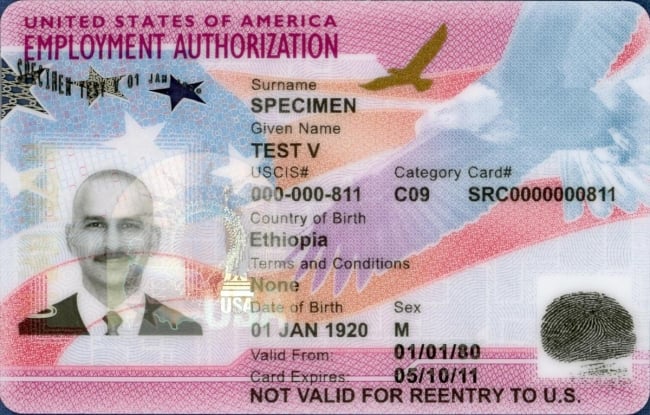You have /5 articles left.
Sign up for a free account or log in.

Wikimedia Commons
A U.S. District Court judge issued an opinion last week upholding a program important to many in higher education that allows international students to stay and work in the U.S. after they graduate in a field related to their area of study.
Nearly a quarter million people participate in the optional practical training program, or OPT, which allows international students to work in the U.S. for up to three years after graduating while staying on their student visas. The regular OPT program provides for one year of postgraduation work authorization, while the STEM OPT extension enables graduates who earned degrees in science, technology, engineering and mathematics fields to stay for an additional two years.
Reggie B. Walton, U.S. district judge for the United States District Court for the District of Columbia, ruled that the Department of Homeland Security did not overstep its authority in expanding the OPT program, contrary to the arguments made by the plaintiffs, the Washington Alliance of Technology Workers (WashTech). WashTech, a labor union, has already filed to appeal the ruling, ensuring litigation in the long-running case will continue. WashTech has filed two separate lawsuits challenging the OPT program, the first of which dates to 2014.
In ruling in favor of the Homeland Security Department, Judge Walton noted that DHS enjoys broad authority to enforce immigration law and that its interpretation that student visa holders can participate in employment for “practical training purposes” is long-standing, dating back to at least 1947, and deserving of deference. Judge Walton also noted that Congress has repeatedly amended immigration laws since that time without unsettling DHS's interpretations, giving credence to the idea that Congress finds DHS's interpretations reasonable.
A spokeswoman for U.S. Immigration and Customs Enforcement, the part of DHS that houses the student visa and OPT programs, declined to comment, citing pending litigation.
John Miano, an attorney for Washington Alliance, said he was confident the union would prevail on appeal.
“At the end of the day, the D.C. circuit isn’t going to say that a person who hasn’t attended school in years is a bona fide student solely pursuing a course of study in an academic institution,” Miano said, referencing the statutory language establishing the student visa category.
Miano described the OPT program as an end run around congressional caps limiting the number of H-1B skilled worker visas. WashTech's lawsuit argued that the program harms American workers by creating unfair competition with foreign labor.
The OPT program enjoys broad support from the technology industry and businesses. The Chamber of Commerce of the United States of America, the National Association of Manufacturers and the Information Technology Industry Council all joined in the defense in the program.
The program is also broadly supported in higher education. Rachel Banks, senior director for public policy and legislative strategy at NAFSA: Association of International Educators, said Judge Walton's ruling "provides safety for the program for now."
"It gives students greater assurance for when they choose to study here," she said. "We’ve got a new [presidential] administration in place that can go a long way to telegraph a message to international students, but also seeing decisions like this that help to reaffirm these opportunities for students just further bolsters confidence."
Banks added that under the Biden administration, "any changes to this program are not going to be at the top of anybody’s to-do list. That alone just creates a sense of relief and assurance that for the time being the program is safe and more reliable."
The OPT program was widely seen as under threat under the Trump administration, which at various points signaled a desire to overhaul the program so as to limit competition with American workers. In the waning days of the administration, on Jan. 13, ICE announced the creation of a new unit to ensure compliance with OPT, citing a need "to take bold action to ensure that the Optional Practical Training (OPT) programs operate in a manner that does not harm U.S. workers or foreign student employees." On Jan. 26, less than a week after President Biden took office, ICE rescinded the announcement of the new unit, saying that compliance efforts were already happening and a new unit was not needed.
Miriam Feldblum, executive director of the Presidents' Alliance on Higher Education and Immigration, an association of college leaders focused on immigration policy, said the ruling is important both because it provides "a clear, coherent, strong opinion that makes clear the government’s authority to develop and implement OPT and STEM OPT programs," and because it comes "within the context of a new administration that has already signaled that they’re going to support practical training."
"The decision not to roll out the OPT compliance unit was, I think, a really good indication that this administration is going to be supportive of opportunities for international students to apply their learning and to engage in practical training," Feldblum said.








